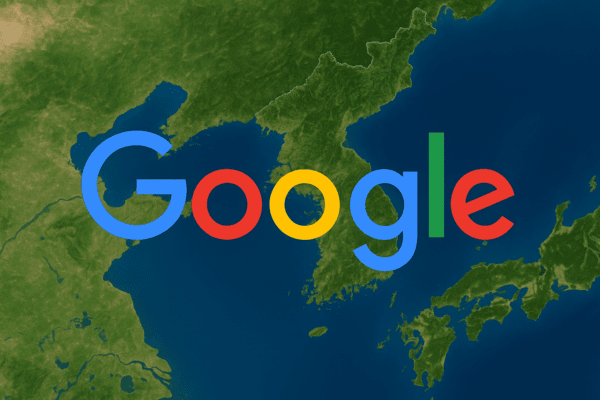The Korean government has once again put on hold Google’s request to export high-precision map data overseas, underscoring its firm stance on protecting the nation’s digital sovereignty. This is not merely an administrative delay but a three-way tug-of-war between technology, security, and industry over the boundaries of “conditional openness.”

■ Google’s “1:5,000 Map”: A Digital Blueprint of Korea
The high-precision map Google seeks to export includes road networks, buildings, and boundaries measured at a near-surveying level of detail (scale 1:5,000). Such data form the backbone of future technologies like autonomous driving, AI navigation, and smart cities—far beyond ordinary route guidance. However, since this information could expose military sites and critical infrastructure if transferred abroad, national security concerns have persisted.
■ Government’s Third Deferral: The Real Meaning Behind “Supplementary Review”
On November 11, the National Geographic Information Institute, in coordination with the Ministry of National Defense and other agencies, deferred its decision on Google’s application and requested additional documentation. The government’s main concerns reportedly center on “security protocols” and “data management location.”
In particular, Google’s plan to use overseas data centers instead of domestic servers remains a key sticking point. Reaffirming the “domestic storage and processing” principle, officials stated that approval cannot be granted until airtight security measures are proven.
■ Digital Sovereignty vs. Pressure for Openness
This is not merely a mapping industry issue. It represents a crossroads for Korea: should high-precision maps be treated as “digital territory” or as “global collaboration resources”?
While the U.S. has criticized Korea’s export restrictions as non-tariff barriers and multinational firms argue that “data openness is a prerequisite for innovation,” domestic experts warn that allowing foreign access would weaken Korea’s competitiveness in autonomous driving and AI mapping industries.
■ Conditional Approval Still Possible
Although the government has officially maintained a “decision deferred” stance, there remains room for conditional approval if Google meets security standards.
Possible terms include limiting the scope of map export, blurring sensitive facilities, or inserting coordinate distortions. Experts interpret the latest delay as “a strategic move to buy time,” allowing Korea to safeguard digital sovereignty while avoiding isolation from global data flows.
■ Korea Is Redefining the Threshold of Data Sovereignty
While the government used the diplomatic phrase “request for supplementation,” its underlying message was clear: “Data must remain on national soil.”
Google’s proposal of global standards may emphasize convenience and innovation, but beneath it lies a logic that erodes the boundaries of data sovereignty. Korea’s refusal marks a reaffirmation of national authority in the digital age.
Data are no longer mere numbers or coordinates—they are security, economy, and the foundation of a nation’s industrial ecosystem.
This decision was not technical but political—and ultimately sovereign.
The case signifies more than an administrative review; it marks the moment a nation declared how far its digital territory extends in the age of data hegemony.
Tech Insider Columnistㅣ tlswnqor@naver.com
- Google Plans to Build a “Solar-Powered Space Data Center” — Finding an AI Power Solution Beyond Earth
- Google Unveils New AI Chip “Ironwood,” Challenging NVIDIA’s Dominance
- Google Maps Data Export Puts Korea’s AI Sovereignty to the Test
- Musk, Bezos, Google: The Race to Build AI Data Centers in Space Has Begun
- Can Google’s Gemini 3 Become the Plot Twist That Restores Its Lost AI Dominance?

![[동학] 카카오톡 친구탭, 결국 12월 롤백… “격자형 피드는 선택 옵션으로”](https://cdn.kmjournal.net/news/thumbnail/custom/20251126/5517_10550_1119_1763853080_120.jpg)


![[테크 칼럼] 제미나이3, GPT-5.1을 넘다…AI는 이제 ‘일을 대신하는 시대’로 간다](https://cdn.kmjournal.net/news/thumbnail/custom/20251126/5457_10454_4847_1763621329_120.jpg)



![[낭만 테크 시대] AI 대항해 시대](https://cdn.kmjournal.net/news/thumbnail/custom/20251126/5603_10714_4334_1764121414_160.jpg)

